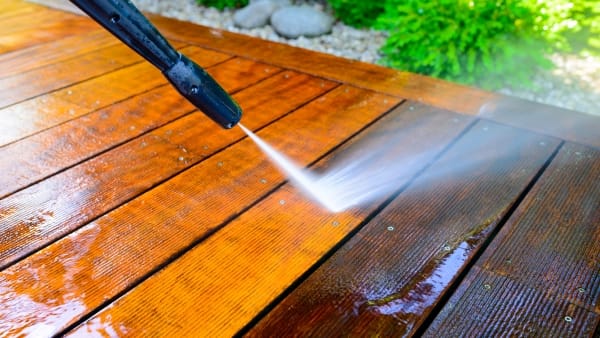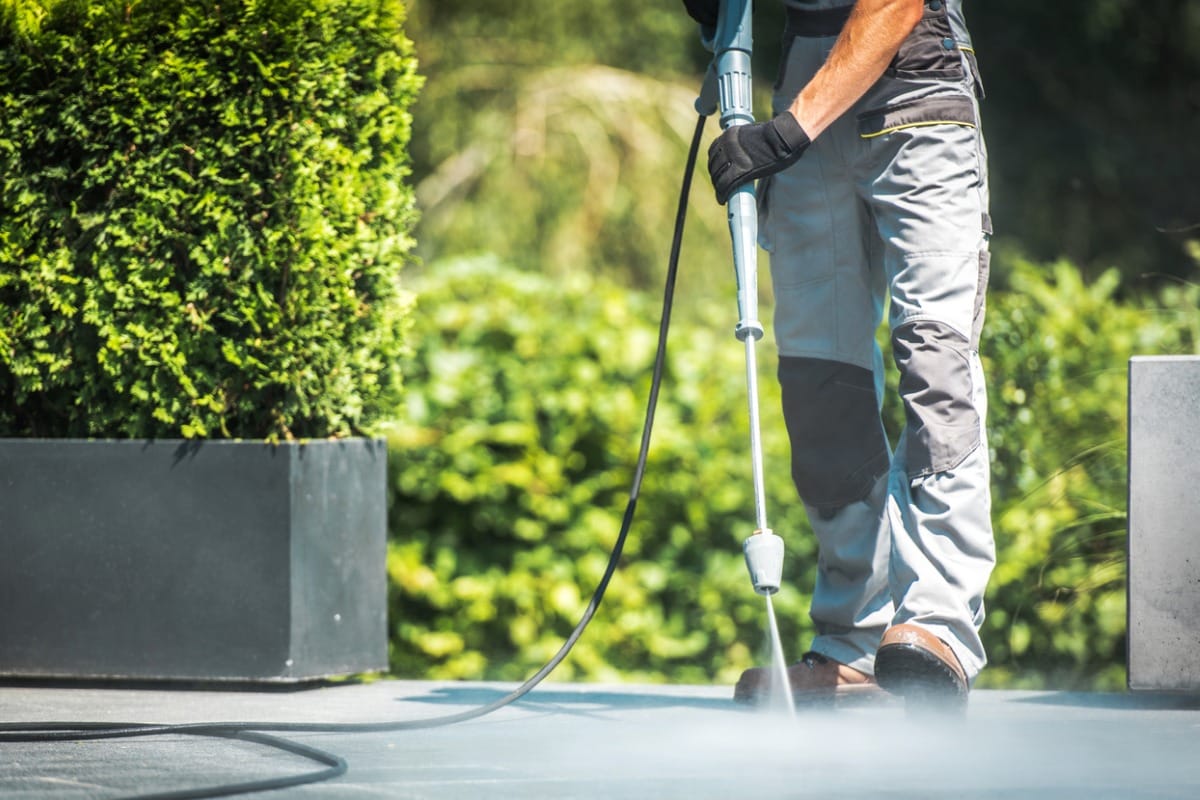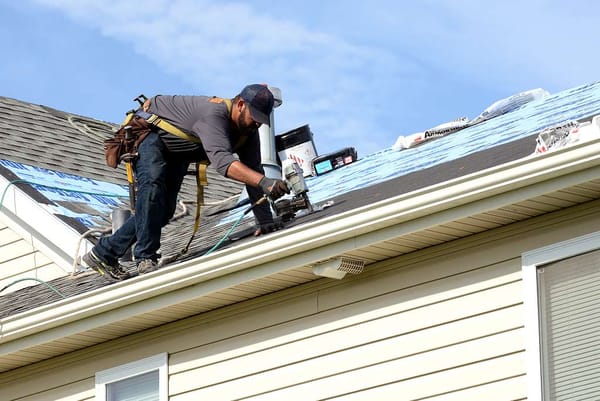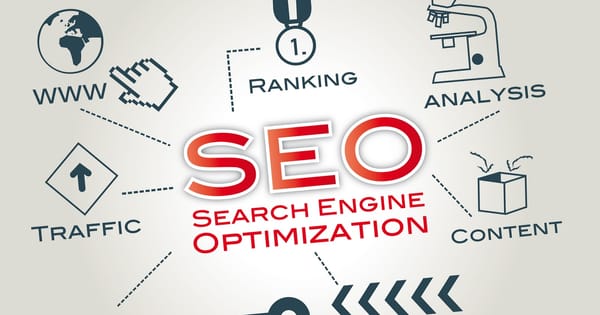The global pressure-washing market is witnessing significant growth, with a projected size of USD 3.0 billion by 2026.
With such potential, it becomes crucial for pressure-cleaning entrepreneurs to set competitive yet profitable rates that attract clients and sustain their business operations.
This article provides you with everything you need to know to set the right rates for your pressure-cleaning business. Let’s dive in.
5 Factors to Consider When Setting Your Rates
When starting a cleaning business, there are some factors to consider in order to ensure you set the perfect rate. These are:
1. Type of Surface
Consider the surface you’re cleaning. Each has unique needs. Delicate surfaces or heavily soiled areas may require extra time and care, impacting overall costs.
For example, cleaning a delicate wooden deck demands a gentle touch, taking more time compared to a standard concrete driveway.
2. Accessibility Challenges
The ease of reaching the cleaning site matters. High or hard-to-access areas might require special equipment, influencing the overall cost of the service.
For instance, cleaning windows on a tall building requires special tools and additional effort, affecting pricing.
3. Quality Tools
The tools you use affect the pricing. Efficient, well-maintained tools speed up the cleaning process, impacting the final cost positively.
Investing in a reliable pressure washer ensures efficient and high-quality cleaning, saving time and enhancing service value.
4. Local Pricing Awareness
Know what others are charging in your area. Set fair and competitive prices that reflect the quality of your service compared to local competitors.
Researching nearby cleaning businesses’ rates ensures your pricing aligns with the local market, offering fair competition.
5. Weather Considerations
Weather affects outdoor cleaning. Plan for seasonal changes and be ready to adjust prices based on different times of the year.
Understanding that winter may not be suitable for outdoor cleaning due to weather conditions prompts seasonal price adjustments.
Types of Pricing Models

Per Hour
Pressure cleaning service charges per hour in the United States typically range from $50 to $100. This pricing model offers transparency and a straightforward billing approach.
Various factors impact these rates, including the complexity of the cleaning task, the type of surface involved, the presence of stubborn stains or mold and the overall size of the area.
Professionals often charge higher rates in urban areas or regions with a higher cost of living. It’s essential to master accurate time estimations for tasks, ensuring clients understand that hourly rates reflect the necessary investment in delivering quality and thorough pressure cleaning services.
For instance, let’s consider a pressure-washing professional charging $75 per hour. If they undertake a job to clean a moderately sized driveway that takes 90 minutes, the total cost would be $112.50.
However, if the job turns out to be more intricate, requiring an additional 30 minutes, the cost would adjust to $150, which is 2 hours multiplied by $75. This example illustrates how the hourly rate ensures fair compensation, considering both the simplicity and complexity of the cleaning task.
Per Square Footage
The cost per square foot typically ranges from $0.10 to $0.50, depending on factors like surface type, complexity and degree of dirt or stain. This method allows for efficient estimates, offering simplicity in communicating costs to clients.
However, it may be oversimplified, as intricate surfaces or heavily soiled areas may require more time than the square footage suggests.
For instance, a pressure cleaning professional charging $0.20 per square foot might estimate a 2000-square-foot driveway at $400. Yet, if the driveway has deep stains requiring additional attention, the actual cost might be $500.This emphasizes the need for flexibility in adapting square footage rates to the unique demands of each cleaning job.
Project-based rates
Project-based rates involve providing clients with a fixed rate for the entire job. This approach simplifies budgeting for clients but requires a thorough understanding of the time and effort each project demands to ensure profitability. Professionals charge anywhere from $100 to $500 or more based on the scope of the job.
For example, a pressure cleaning business might quote $200 for cleaning a standard-sized patio, estimating the job to take approximately two hours. This pricing structure is also very effective for individuals who want to invest in real estate, as it provides clarity and predictability in budgeting for property improvement projects.
However, it's essential to note that if unforeseen challenges arise, such as stubborn stains requiring additional time, the business must absorb the extra effort without impacting the client’s fixed rate."
Flat Rate Pricing
Flat rate pricing involves charging a fixed, all-inclusive fee for a specific job, offering simplicity and transparency for clients. This pricing model is often used for promotional purposes, making it easy for clients to understand and remember.
Most businesses charge between $90 to $300. Businesses might establish flat rates like $99 for a standard exterior cleaning. While this approach can create a distinctive and memorable pricing structure, it requires careful consideration.
For example, if a small job, like cleaning a compact deck, takes 30 minutes, the business makes a profit. However, a larger job, like cleaning a multi-story house with intricate features, may take longer, potentially leading to thinner profit margins.
The success of flat-rate pricing relies on volume, as a high quantity of smaller jobs compensates for potential losses on more extensive or time-consuming projects.
Winding Up
Understanding the diverse pricing models for pressure cleaning services is crucial for entrepreneurs seeking to build a successful business.
Whether opting for hourly rates, square footage charges, project-based rates, or flat rate pricing, finding the right balance ensures fair compensation and client satisfaction.






